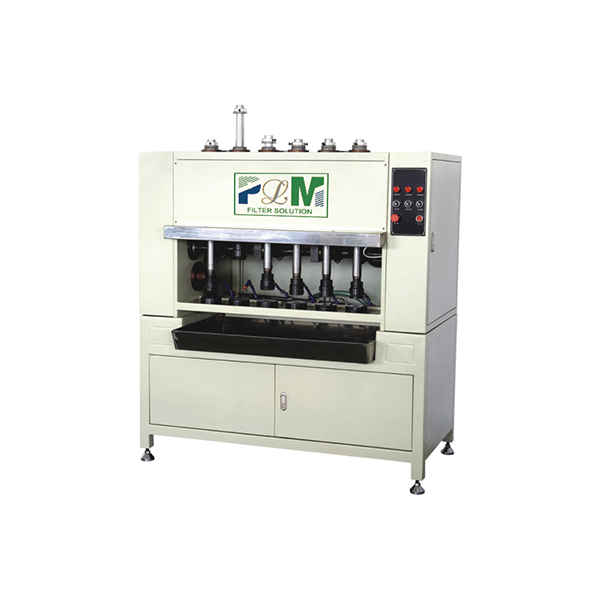paź . 19, 2024 12:12 Back to list
Effective Strategies for Optimal Wastewater Treatment Solutions and Their Benefits
Best Wastewater Treatment Practices for a Sustainable Future
Wastewater treatment is an essential process that allows communities to reclaim water, minimize pollution, and protect public health and the environment. As the global population increases and urbanization accelerates, the demand for effective wastewater management practices has never been more critical. This article discusses some of the best wastewater treatment practices that are shaping the future of sustainable environmental management.
Understanding Wastewater
Wastewater includes any water that has been affected by human use, often containing a mix of domestic, industrial, and agricultural waste. Treating this water effectively not only helps in reducing pollutants but also ensures the safe return of water to the environment or its reuse in various applications, such as irrigation and industrial processes.
Traditional Treatment Methods
Historically, wastewater treatment methods have involved several stages primary, secondary, and tertiary treatment. In primary treatment, physical processes such as screening and sedimentation are employed to remove larger solids. Secondary treatment typically involves biological processes where microorganisms break down organic matter. Tertiary treatment, the final stage, focuses on further purification, removing additional contaminants and pathogens through advanced processes like filtration, disinfection, or nutrient removal.
While these traditional methods are still widely used, they are gradually being enhanced or replaced by more innovative practices.
Innovative Wastewater Treatment Technologies
1. Membrane Bioreactors (MBRs) Combining biological treatment with membrane filtration, MBRs provide high-quality effluent while minimizing space requirements. They are particularly effective in compact urban areas and can be utilized for wastewater recycling.
2. Aerobic Granular Sludge (AGS) This technology enhances the settling properties of sludge, leading to more efficient treatment. AGS allows for reduced energy consumption and improved nutrient removal, making it an attractive option for modern treatment plants.
3. Constructed Wetlands Mimicking natural wetland processes, constructed wetlands use plants and soil to filter and purify wastewater. They are an environmentally friendly solution that can be implemented in rural areas or as part of a green infrastructure strategy.
best wastewater treatment

4. Electrocoagulation This advanced technique uses electrical currents to remove contaminants from wastewater. It is particularly effective in treating industrial effluents and can address a wide range of pollutants, including heavy metals and oils.
5. Anaerobic Digestion This process not only treats organic waste but also captures methane gas, which can be used as a renewable energy source. Anaerobic digestion is increasingly utilized in municipal wastewater treatment plants to enhance energy self-sufficiency and reduce greenhouse gas emissions.
Emphasizing Water Reuse
As water scarcity becomes a pressing concern worldwide, the emphasis on wastewater reclamation and reuse has grown. Treated wastewater can be safely repurposed, reducing the stress on freshwater sources. Applications include agricultural irrigation, groundwater recharge, industrial processes, and even potable water, following advanced treatment processes like reverse osmosis.
Community Involvement and Education
For wastewater treatment to be effective and sustainable, community involvement is paramount. Educating residents about the importance of wastewater management and encouraging responsible water consumption can significantly improve treatment outcomes. Initiatives such as pollution prevention campaigns and infrastructure investment in local communities can foster a culture of sustainability.
Regulatory Frameworks and Economic Incentives
Governments play a crucial role in wastewater management by establishing regulations that promote best practices and protect water resources. Economic incentives, such as grants for upgrading treatment facilities or subsidies for adopting green technologies, can encourage municipalities and industries to invest in sustainable wastewater solutions.
Conclusion
Effective wastewater treatment is vital for sustaining our water resources and protecting public health. By embracing innovative technologies, emphasizing water reuse, and involving communities, we can forge a path toward a sustainable future. As we continue to develop better practices and strive for efficiency, we can mitigate the impacts of urbanization and climate change, ultimately preserving our planet for future generations.
-
AI-Optimized Active Carbon Filter for Air Purifiers | 51 chars
NewsAug.02,2025
-
Premium Active Carbon Air Filter for Air Purifiers | Odor Removal
NewsAug.01,2025
-
Activated Carbon Air Filters: Ultimate Odor Removal for Purifiers
NewsJul.31,2025
-
PP Spun Filter Cartridge Making Machine for Efficient Filtration Solutions
NewsJul.29,2025
-
Active Carbon Air Filter for Air Purifier - Superior Odor & Pollutant Removal
NewsJul.29,2025
-
High Strength Orange PU Glue for Versatile Bonding Solutions
NewsJul.28,2025
